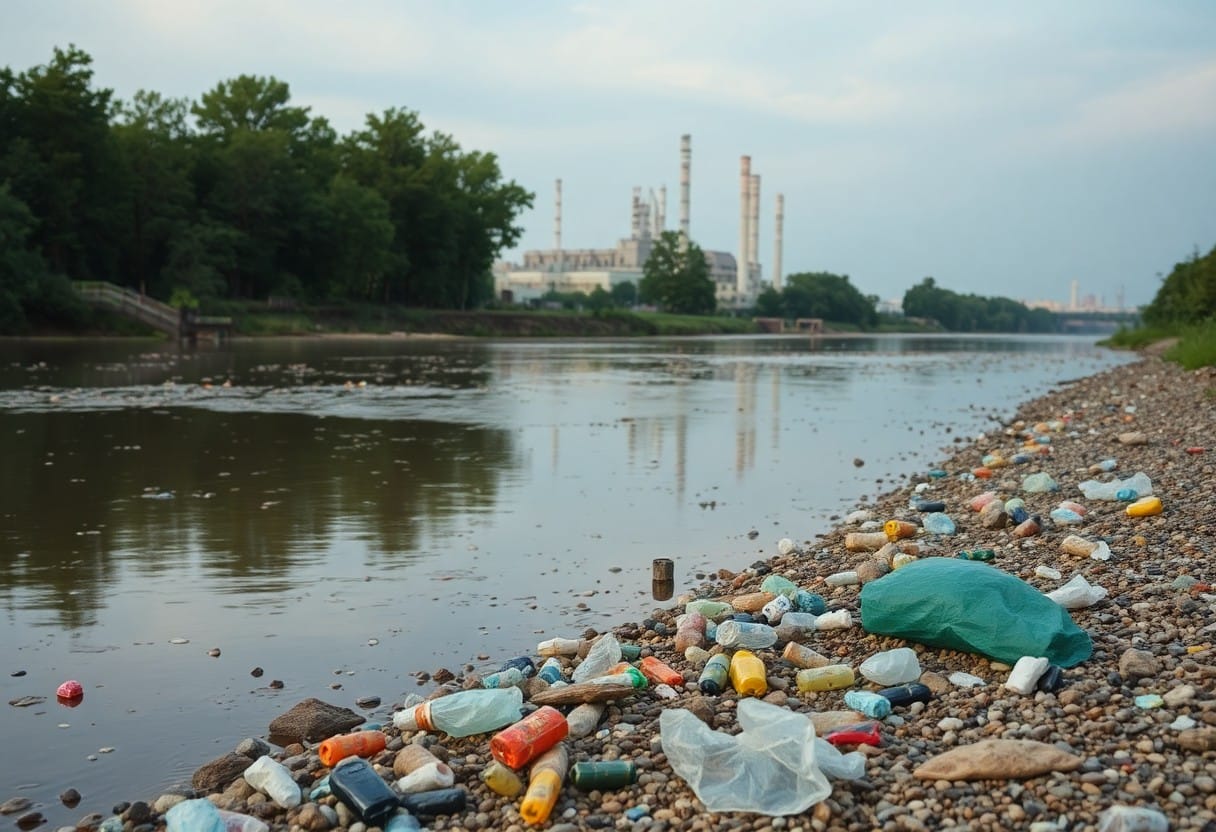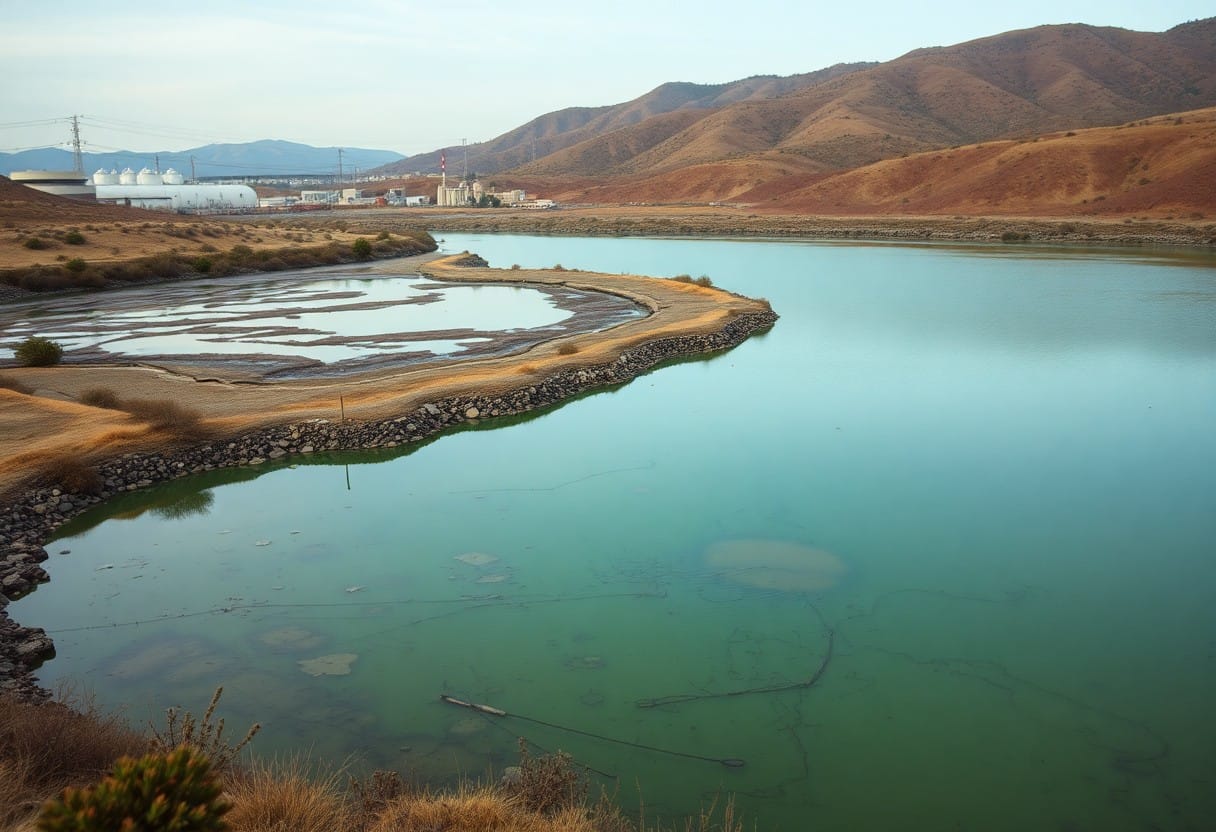Many residents of Fayetteville have found themselves grappling with the implications of a water crisis that has raised serious ethical questions about Chemours, a company linked to toxic pollution in the Cape Fear River. As you learn more about this situation, you’ll discover the dangers associated with PFAS contamination, as well as the potential impacts on community health and safety. This blog post researchs into the ethical responsibilities that corporations like Chemours hold, alongside the ongoing legal battles, including the Cape Fear River PFAS Litigation, highlighting the need for corporate accountability in protecting public resources.
Overview of Fayetteville’s Water Crisis
A series of alarming discoveries regarding water contamination has thrust Fayetteville into a significant water crisis, prompting concerns over the safety of drinking water sourced from the Cape Fear River. Residents have been faced with the reality of potential health risks linked to hazardous chemical contaminants linked to the nearby Chemours facility, leading to widespread public anxiety and demands for accountability.
Historical Context
About Fayetteville’s history with industrial activity is marked by the establishment of chemical manufacturing facilities, including Chemours, which was previously part of DuPont. Over the years, these facilities have contributed to economic growth but have also raised environmental concerns that are now coming to fruition in the form of water contamination.
Key Events Leading to the Crisis
Events leading to the crisis began to unfold over recent years as studies and testing revealed elevated levels of PFOA and PFOS in local water supplies, chemicals known for their harmful effects on human health. This sparked widespread concern among residents about the safety of their drinking water.
Due to these alarming findings, regulators took action by issuing health advisories, prompting increased scrutiny on Chemours regarding its waste disposal practices. As the situation escalated, both local authorities and community members demanded transparency and accountability from the company. Subsequently, public outcry led to legal battles and calls for stricter environmental regulations to ensure the safety of Fayetteville’s water supply.
The Role of Chemours in the Crisis
It is necessary to understand that Chemours plays a significant role in Fayetteville’s water crisis. The chemical manufacturing company, known for its production of per- and polyfluoroalkyl substances (PFAS), has faced mounting scrutiny for its environmental impact, primarily concerning contamination of local water supplies. You may wonder how their practices have contributed to the ongoing concerns surrounding public health and safety in the community.
Chemical Manufacturing Practices
Chemical manufacturing practices at Chemours involve the use of complex processes to produce a variety of chemicals, including PFAS. You should be aware that these practices have raised questions about their safety and long-term environmental effects. The potential for harmful byproducts and inadequate waste management has led to significant apprehension from local residents regarding the integrity of their water supply.
Regulatory Oversight and Accountability
Practices surrounding regulatory oversight and accountability are necessary in understanding the implications of Chemours’ operations. The company has faced criticism for its perceived lack of transparency and adherence to environmental regulations, which can impact your community’s health.
Even as regulatory frameworks exist to monitor chemical companies, the enforcement of these regulations often falls short. You should take note that Chemours has been cited for numerous violations, which underscores the vulnerabilities in the system. With public pressure mounting, the need for stricter oversight and accountability mechanisms has never been more apparent. Your community deserves assurance that the entities responsible for your water supply are held to the highest standards of safety and environmental stewardship.
Impact on Community Health
Even when chemical contamination is not immediately visible, its effects on community health can be profound and long-lasting. Fayetteville residents face increasing health risks due to polluted water sources, putting your well-being at stake. As the community grapples with these challenges, the ethical implications of Chemours’ operations come sharply into focus.
Contaminants Identified in Water Supply
Any analysis of Fayetteville’s water supply reveals a disturbing presence of various contaminants, including per- and polyfluoroalkyl substances (PFAS). These harmful chemicals have been linked to serious health issues, making them a significant concern for you and your family.
Health Risks and Public Response
Around Fayetteville, the awareness of potential health risks associated with contaminated water has led to public outcry and increased demand for accountability. As you become more informed about the potential dangers, local communities are mobilizing to ensure safer water sources.
Understanding the depth of these health risks is important for you as a Fayetteville resident. Exposure to PFAS can lead to serious health issues, including liver damage, immune system problems, and even certain types of cancer. Public response has been significant, with community meetings and advocacy campaigns aiming to pressure local officials and Chemours for better safety measures. Residents are increasingly taking action, demanding transparency and reform to protect not just your health but the well-being of future generations as well.
Ethical Implications of Corporate Practices
After examining Fayetteville’s water crisis, it becomes clear that the ethical implications of Chemours’ corporate practices are severe. The company’s choices not only impact the environment but also threaten public health and trust. By prioritizing profit over the well-being of the community, you are left questioning their commitment to ethical standards and accountability. The actions of corporations like Chemours serve as a reminder of the significant responsibility they hold in safeguarding both natural resources and community welfare.
Corporate Responsibility and Transparency
One of the key aspects of ethical corporate behavior is transparency. When companies like Chemours fail to disclose vital information about their operations and environmental impact, they undermine public trust. You deserve to be informed about the substances that may affect your health and environment. Without open communication, the ethical foundation for corporate responsibility crumbles, leaving communities vulnerable to the adverse effects of industrial practices.
Stakeholder Interests and Community Engagement
Corporate engagement with stakeholders and the community is imperative for maintaining ethical standards. When companies like Chemours neglect to involve you—community members— in their decision-making processes, the negative consequences can be profound. You should have a voice in discussions that directly affect your health and environment. Fostering meaningful dialogue and collaboration with local communities is not just ethical; it’s a necessity for trust and sustainable development.
Implications of inadequate stakeholder engagement become evident when local communities are forced to bear the consequences of corporate actions without adequate input. When you are excluded from discussions surrounding environmental practices, the risks you face increase significantly. The lack of engagement can lead to heightened distrust and *dangerous* outcomes, including compromised water quality and *threats* to public health. On the other hand, embracing stakeholder interests may yield *positive* relationships that encourage cooperation, enhance transparency, and ultimately promote the well-being of both the environment and the community. Prioritizing efficacious communication is fundamental for ethically responsible corporate behavior.
Legal and Regulatory Responses
Now, as the water crisis in Fayetteville unfolds, the spotlight has turned to the legal and regulatory frameworks that govern companies like Chemours. These responses are critical in addressing not just the immediate environmental concerns but also the long-term implications for public health and safety.
Lawsuits and Legal Challenges
Along the path of accountability, numerous lawsuits and legal challenges have emerged against Chemours. These suits reflect growing community unrest and demand for restitution for the harmful impacts of chemical exposure, underscoring the importance of holding corporations accountable for their actions.
Policy Changes and Future Regulations
Legal reforms are emerging as communities seek stronger protections from similar incidents.
But, as a direct result of the Fayetteville water crisis, there is an increasing push for more stringent policies regulating PFAS (per- and polyfluoroalkyl substances) and other harmful chemicals. These measures could include stricter emissions standards, comprehensive site monitoring, and enhanced public disclosure requirements. Moreover, increased community engagement in regulatory processes is becoming a priority, ensuring your voice is heard in decisions that directly affect your health and the environment. These regulations aim not only to address past grievances but also to safeguard your future safety and well-being.

Lessons Learned and Future Directions
Keep in mind that the water crisis in Fayetteville offers valuable insights into the ethical responsibilities of corporations. As highlighted by a UN panel alleges Chemours is violating human rights of …, this situation underscores the importance of holding companies accountable for their actions, particularly regarding environmental impacts on communities.
Improving Water Safety Measures
At the forefront of addressing water crises is the necessity to enhance water safety measures. Implementing rigorous testing protocols and investing in advanced filtration technologies will not only ensure safer drinking water but also restore community trust in local resources.
Strengthening Corporate Ethics and Accountability
Among the key steps forward is the need to strengthen corporate ethics and accountability. This means you should advocate for transparency in operations and demand higher standards from companies like Chemours.
Hence, building a robust ethical framework requires companies to prioritize environmental safety and actively engage with impacted communities. You should expect transparent practices and responsibility from corporations, especially when their actions pose significant risks to community health. By pushing for accountability, you contribute to a broader movement advocating for the rights of those affected by industrial activities, ensuring that the balance between corporate interests and public welfare is effectively addressed.
Summing up
Considering all points, Fayetteville’s water crisis highlights significant ethical concerns surrounding Chemours’ practices. You can see how the company’s decisions, particularly regarding transparency and accountability, impact not only local communities but also broader environmental standards. Your understanding of these issues can empower you to advocate for responsible corporate behavior and demand better protections for public health and safety. The situation serves as a reminder of the importance of holding corporations accountable for their environmental commitments.


















